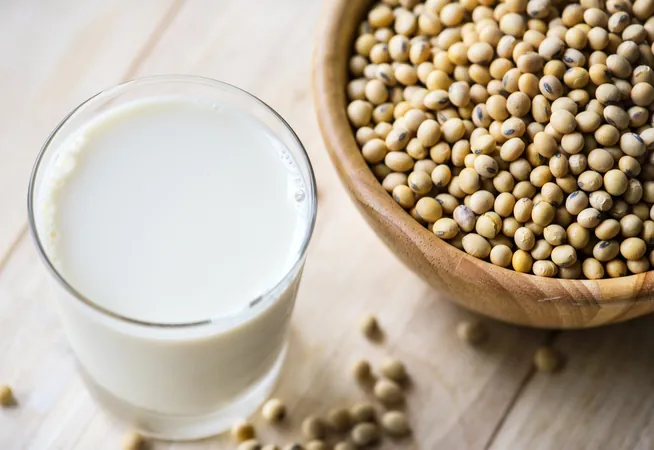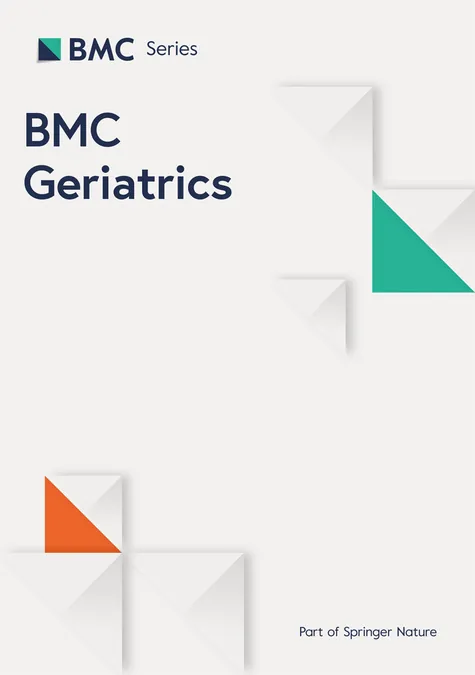
The Soy Solution: Why Postmenopausal Women Should Embrace This Nutritional Powerhouse!
2024-11-27
Author: Nur
Introduction
Recent research from the University of Toronto is changing the narrative around soy consumption for postmenopausal women, offering support and reassurance regarding its health benefits. A comprehensive analysis of 40 randomized controlled trials with over 3,000 participants found that the estrogen-like compounds found in soy, known as isoflavones, do not negatively impact key markers associated with estrogen-related cancers. This groundbreaking study heralds soy not only as a safe food option but also as a potential therapeutic ally.
Health Endorsements
Leading health organizations, including the Canadian Cardiovascular Society, already endorse the inclusion of soy foods in a healthy diet. These versatile edibles are a complete source of high-quality protein and have been recognized by health authorities such as Health Canada and the US Food and Drug Administration for their role in reducing the risk of heart disease. Moreover, soy has been shown to alleviate common menopause symptoms such as hot flashes, which many women grapple with during this transitional phase.
Expert Opinions
Laura Chiavaroli, an assistant professor of nutritional sciences and the study's senior author, emphasizes the significance of soy's benefits, stating, 'The risk of cardiovascular disease increases substantially as women navigate menopause, so incorporating soy can provide dual advantages during this crucial time.'
Public Concerns
Despite its advantages, many women remain wary of soy due to its isoflavones, which bear a structural resemblance to estrogen. Historically, high doses of isoflavones in animal studies have raised concerns about increased cancer risks, leading to a plethora of mixed messages. 'People often express anxiety about consuming soy, given the confusing information prevalent in popular media,' notes Gabrielle Viscardi, the lead author of the study and a dedicated Ph.D. candidate in nutritional sciences.
Research Findings
The researchers meticulously compiled data comparing the effects of soy isoflavones on four specific biological outcomes associated with estrogen-dependent cancers, including endometrial cancer. The trials, which involved postmenopausal women consuming soy isoflavones for at least three months, conclusively demonstrated that soy does not alter these four estrogen-related markers. This finding bolsters the argument that soy isoflavones behave differently than human estrogen, particularly regarding estrogen-responsive cancers.
Estrogen Receptors and Isoflavones
'We have estrogen receptors throughout our bodies, yet isoflavones from soy do not bind to all these receptors equally, leading to beneficial cardiovascular effects without negatively impacting the female reproductive system,' explains Viscardi, who is also a registered dietitian.
Alternative to HRT
This unique behavior of soy isoflavones positions them as a possible alternative to hormone replacement therapy (HRT), which is often employed to ameliorate menopause symptoms by replenishing estrogen levels. Chiavaroli adds that many women prefer alternatives to traditional HRT, particularly those at higher risk for estrogen-sensitive cancers such as breast cancer or those with a history of cardiovascular issues. For these women, adding soy to their balanced diet can help curb menopausal discomfort while promoting heart health.
Environmental Benefits
The findings are also in line with Health Canada's dietary recommendations, which advocate for an increased intake of plant-based proteins—an initiative beneficial not just for personal health but also for the planet.
Conclusion
Chiavaroli hopes that their research will empower more women to incorporate soy into their diets without fear of raising their risk of estrogen-related cancers. So, if you're a postmenopausal woman, don’t miss out on the remarkable benefits of soy—your heart and body will thank you!


 Brasil (PT)
Brasil (PT)
 Canada (EN)
Canada (EN)
 Chile (ES)
Chile (ES)
 España (ES)
España (ES)
 France (FR)
France (FR)
 Hong Kong (EN)
Hong Kong (EN)
 Italia (IT)
Italia (IT)
 日本 (JA)
日本 (JA)
 Magyarország (HU)
Magyarország (HU)
 Norge (NO)
Norge (NO)
 Polska (PL)
Polska (PL)
 Schweiz (DE)
Schweiz (DE)
 Singapore (EN)
Singapore (EN)
 Sverige (SV)
Sverige (SV)
 Suomi (FI)
Suomi (FI)
 Türkiye (TR)
Türkiye (TR)